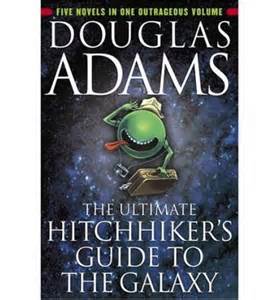Every little helps. So say Tesco.
And if I had their umptillions, I’d probably be able to
hijack a common platitude for my massive advertising campaign too. Heck, I’d
splash out on a duck-billed one.
Sadly, we can’t quite match their corporate might and
it’s with feelings akin to those of a sentient and emotionally sensitive Titanic
that I have to report the sales figures of Evil
UnLtd books for the past 6 months (Nov 23rd 2012 to May 24th
2013) were pretty dismal.
Well, I tell a lie. They weren’t pretty at all.
This would be disappointing in any six month period. But
for this particular six months it’s extra depressing. Because I’d decided to
donate all royalties from the Evil
series to Cancer Research UK and I’d
really hoped to do some significant good. I even managed to feel a bit more
comfortable with the whole promotion side of things and stepped up the campaign
on social media, appealing to local newspapers and so on with greater
determination and less shame than previously.
Clearly, I’m doing something wrong.
Obviously, I hate to lump anyone – least of all myself –
in the same bracket as the Chancellor, but I fear I have fallen as far short of
my targets as George Osborne. And that’s not a happy comparison. To be honest,
I’d rather be a sentient Titanic and routinely strike icebergs. (The latter
experience could be mitigated considerably by having Kate Winslet on board.)
When I first launched Evil UnLtd, I was resistant to self-publication. But in terms of my
ability to spread the word about my books I’d based my calculations on the
numbers of Facebook friends, Twitter followers and other internet contacts in
my email address book. But as everyone knows – and I learned – it’s not quanity
that counts so much as quality. Out of 400+ Facebook friends, for example, about
30 would usually respond in the positive to Event invitations and the like. (A
special breed of ‘friend’ will consistently respond in the negative and then
follow up shortly after with an Event or promotion of their own.) Many online
reviewers are charging prohibitive fees for reviews. And in the real world,
magazines and bookstores generally seem to interpret self-pubbed as something
to be snubbed. It’s an uphill struggle with the mountain of titles out there
only getting bigger.
Etc. Etc.
But.
It’s not on the barriers and obstacles I wish to focus.
No, because with every cloud there’s a silver lining and in this case it’s
golden.
Because although they are in the minority, I am blessed
with a truly brilliant core of friends who have shone like stars. Sharing
links, tweets, status updates, lending guest spots on blogs and generally doing
all they can. A number of them on a constant, unfailing basis that never ceased
to impress and hearten. So when I say, ‘every little helps’, in their case it’s
no platitude.
They know who they are. And in Evil UnLtd Vol 3, I’ve
included the names of everyone who’s helped over those six months in the
credits. There are, I'm happy to say, some individuals out there who are guaranteed my support for their projects.
It’s the least I can do until we can start giving them
their own stars in sidewalks outside Chinese theatres. A heartfelt thank you to
you all.
Meanwhile, there’s no ignoring the diminutive figure that
we’ve managed to raise. Totting up royalties from all ebook sales on Amazon and
Smashwords for the six months plus a rare paperback sale, we have amassed £40.06
for Cancer Research UK. While most marketing would like us all to aspire to
smaller figures, I had hoped for more. So I will apply a spot of financial
airbrushing to round that up to £50.
To paraphrase Douglas Adams, you might think that’s big,
but that’s peanuts to cancer.
But I have to hope that every little does indeed help.
Of course, no sooner had our six month campaign concluded
than another hero of mine was lost to cancer.
It’s no coincidence. The fact is, we’re losing them all
the time.
So, in case you hadn’t heard, I decided then and there to
extend the 100% donation for another year. So that’s 100% royalties from all Evil Unltd books (in all formats) going
to Cancer Research UK until May 24th
2014.
You can find links to the various ways you can get your
hands, virtual or otherwise, on the paperbacks and/or ebooks by visiting the
official Evil website:
So please treat yourself to a copy of Vols 1, 2 and/or 3.
According to reliable sources, as the tabloids say, they are a) funny and b)
you don’t even have to be an SF reader to enjoy them. Alternatively they could
make for a wicked gift for someone. But they’re not much use as a doorstop
unless you go for the paperback version. And even then you’d probably have to
get three and glue them together in a solid block.
I can’t say for sure. I’m not much for DIY. I’m still a
Learner at this self-publishing lark. So slap an L plate on me and I’ll have to
do some rethinking on how to go about promoting books more effectively. Any and
all suggestions welcome.
Please help spread the word and share the link on
Facebook, Twitter, blog, email – wherever you can.
Help make Evil
do some Good.
And thank you, again, to all those who have helped so
far. It means a great deal.
















